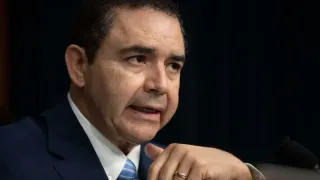April 24, 2016
NC Governor Forced to Seat Openly Gay Equality Activist on State Assembly
Lainey Millen READ TIME: 2 MIN.
Equality North Carolina's executive director, Chris Sgro, was selected by the Guilford County Democratic Party to fill the seat of the late Rep. Ralph Johnson on April 9 at a party meeting held that same day.
Johnson, who died on March 15, represented District 58 at the time of his death. He was in the process of a re-election campaign when he suffered a stroke. Amos Quick, a member of the Guilford County School Board, won the election and will assume the duties in January when Sgro passes him the baton.
Sgro will now serve as the only openly LGBT General Assembly member as it convenes its regular session on April 25. He and the Democratic Party are steadfast in the repeal of HB2.
According to the Raleigh News & Observer, Gov. Pat McCrory issued a proclamation appointing Sgro to the North Carolina House. A headline read: "McCrory appoints LGBT leader Chris Sgro to NC House." From that many could ascertain that McCrory has softened his views on the LGBT community. However, the article went on to say that he did not have a choice in the matter because the Guilford County Democratic Party Executive Committee has made their choice and McCrory and his associates were left to deal with it.
The News & Observer reported that N.C. Democratic Party Chairwoman Patsy Keever was favorable with Sgro's appointment. "Chris Sgro is an excellent choice for this seat, and I know he ll do a great job working for all North Carolinians in the upcoming legislative session," adding, "As a strong and vocal advocate for the LGBT community, Chris has the experience and the skills to continue our fight against HB2, Gov. McCrory's discriminatory, job-killing law," the news source said.
The Democratic National Committee and its Chair of the LGBT Caucus Earl Fowlkes issued the following statement upon news of the appointment: "When Republican leaders in North Carolina passed HB 2, they not only stripped LGBT citizens of protections from discrimination, but continued a chain reaction of ongoing, concerted efforts to stigmatize LGBT people around the country. More Democrats, and certainly LGBT Democrats, are needed in legislatures to help counter and block these efforts. I congratulate the people of North Carolina and the North Carolina Democratic Party on the appointment of LGBT leader Chris Sgro to fill an unexpired term in the General Assembly. Chris Sgro will be an outstanding member of the legislature. I'm proud to be part of a Party that not only stands with LGBT people, but has consistently helped move us toward further progress."
For more information, visit equalitync.org, ncdp.org and guilforddems.org.
 Copyright QNotes. For more articles from QNotes visit
Copyright QNotes. For more articles from QNotes visit 





